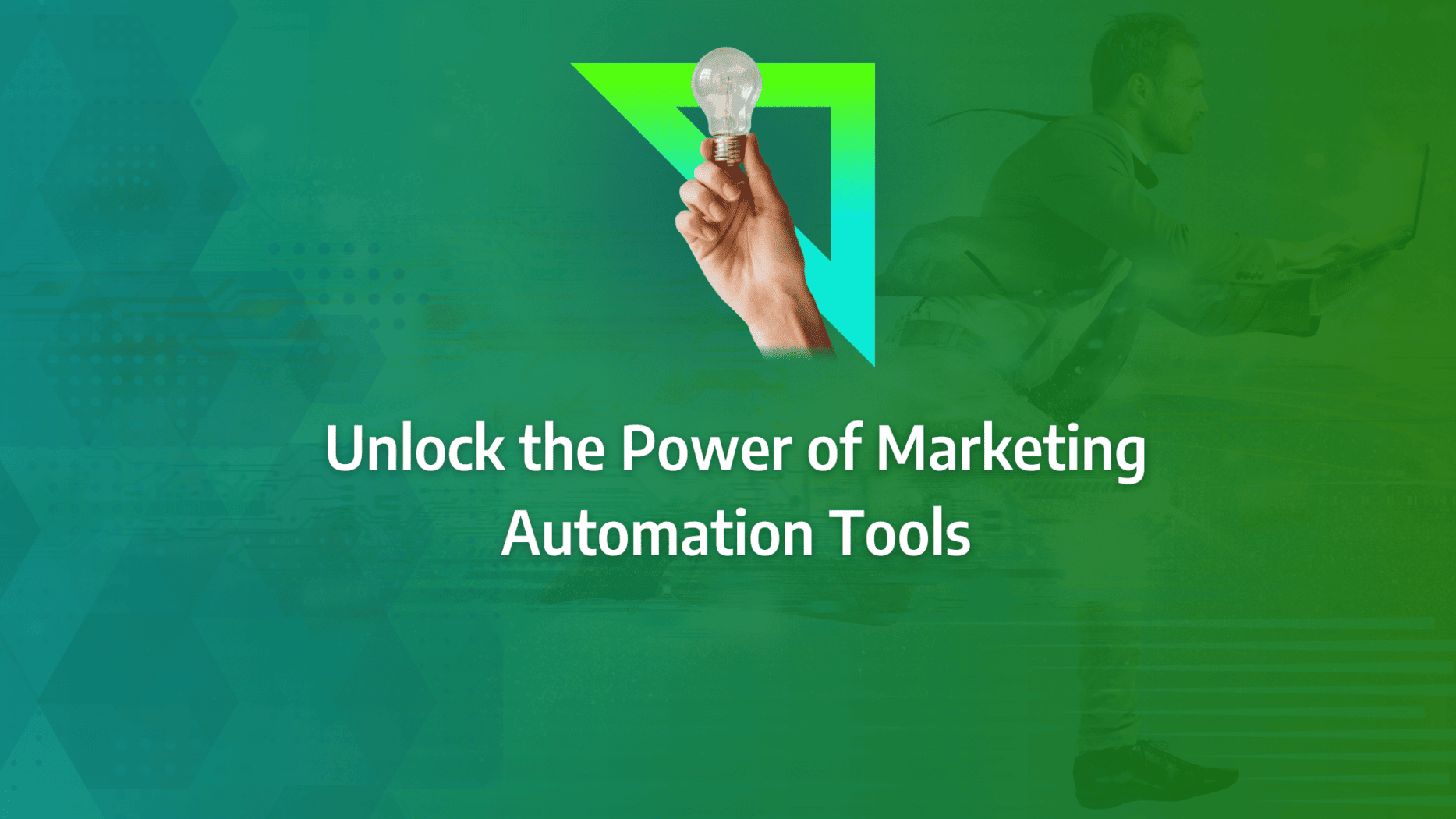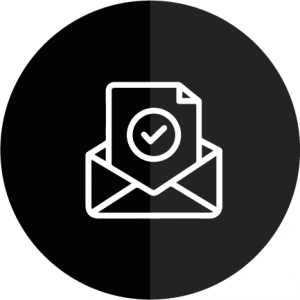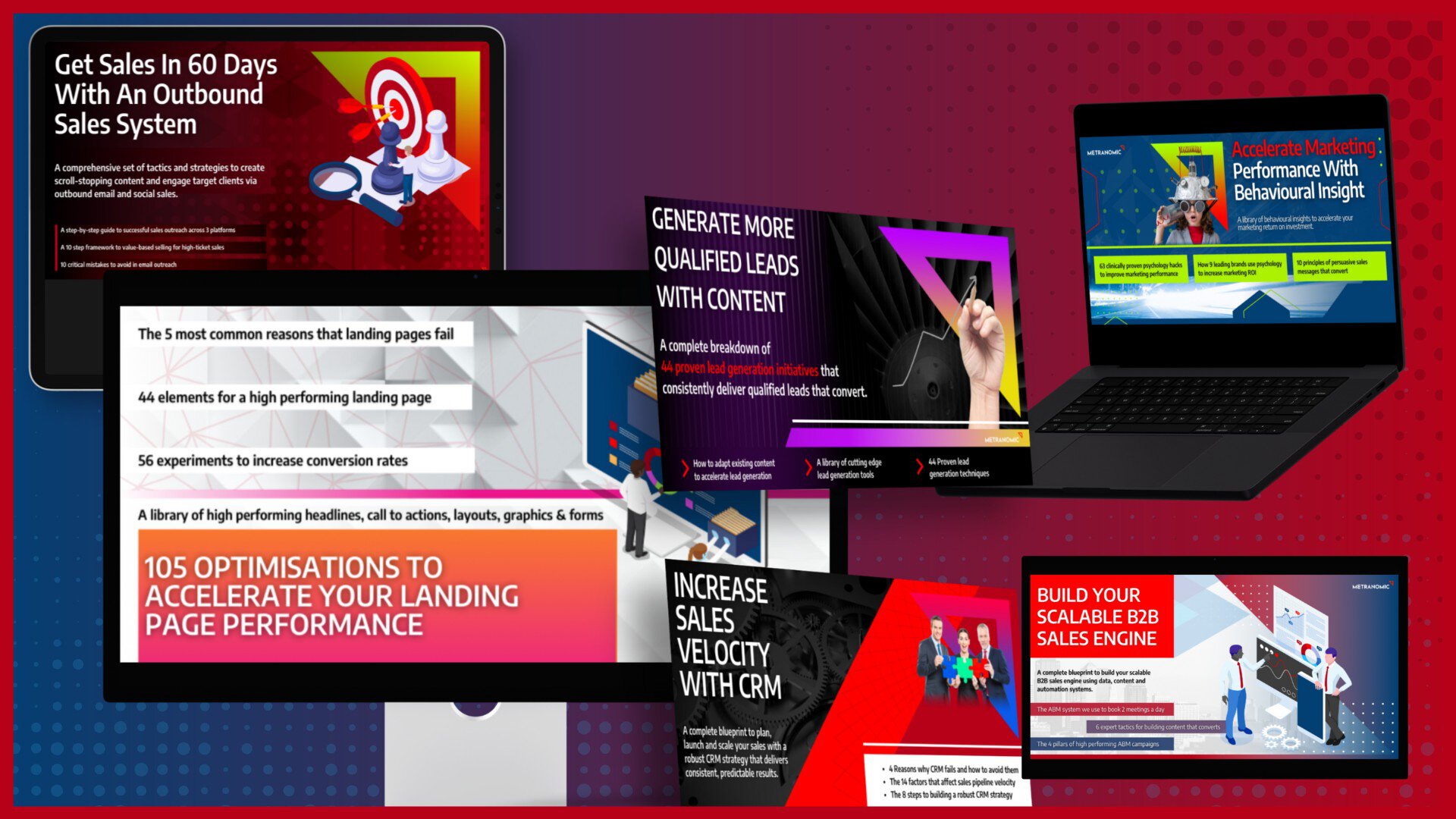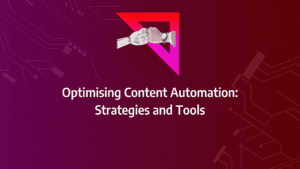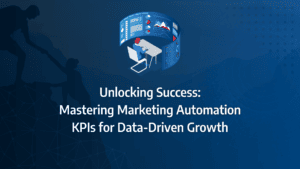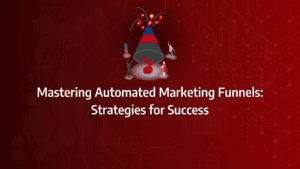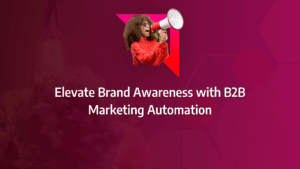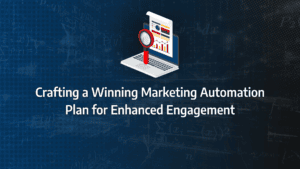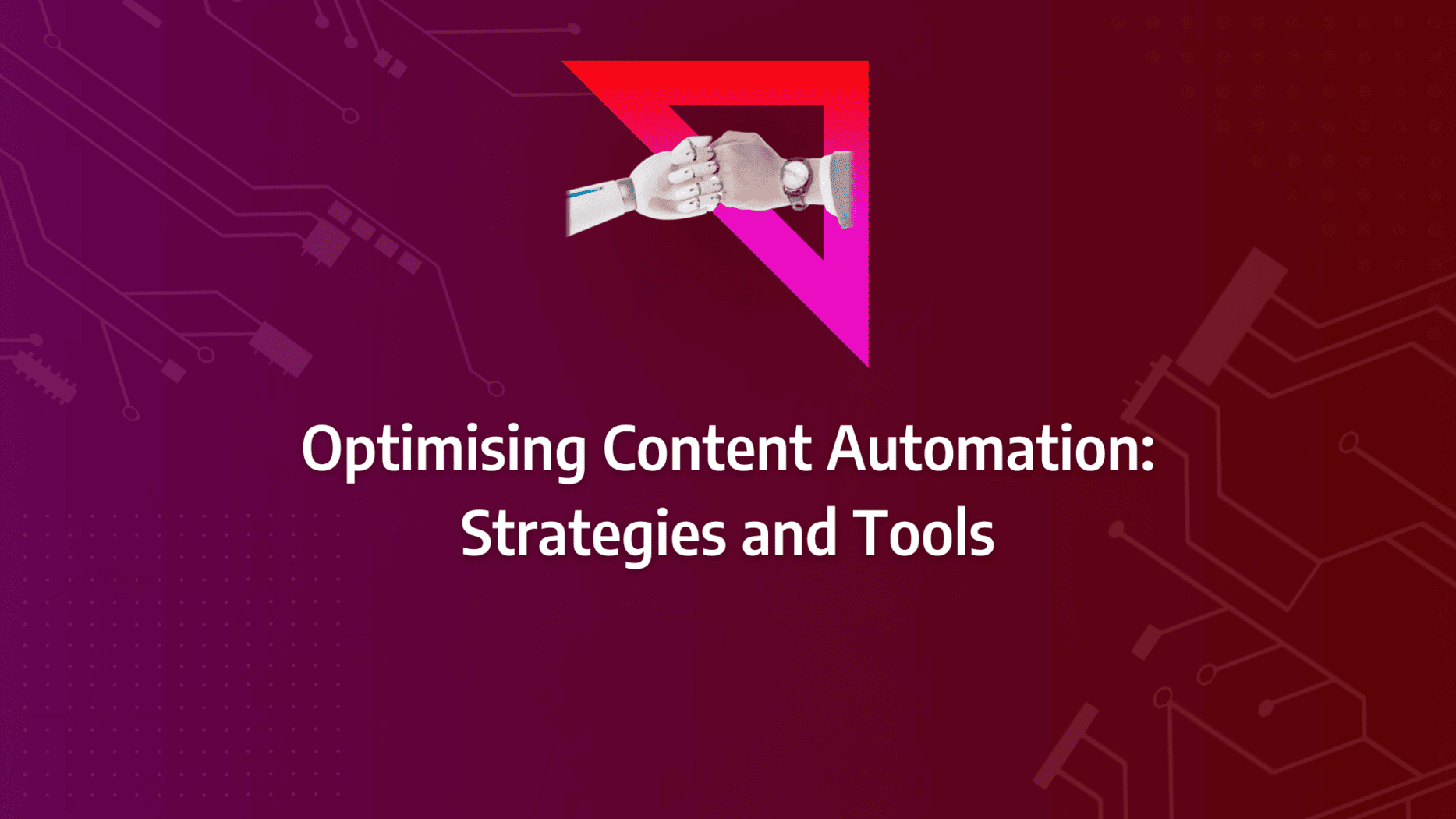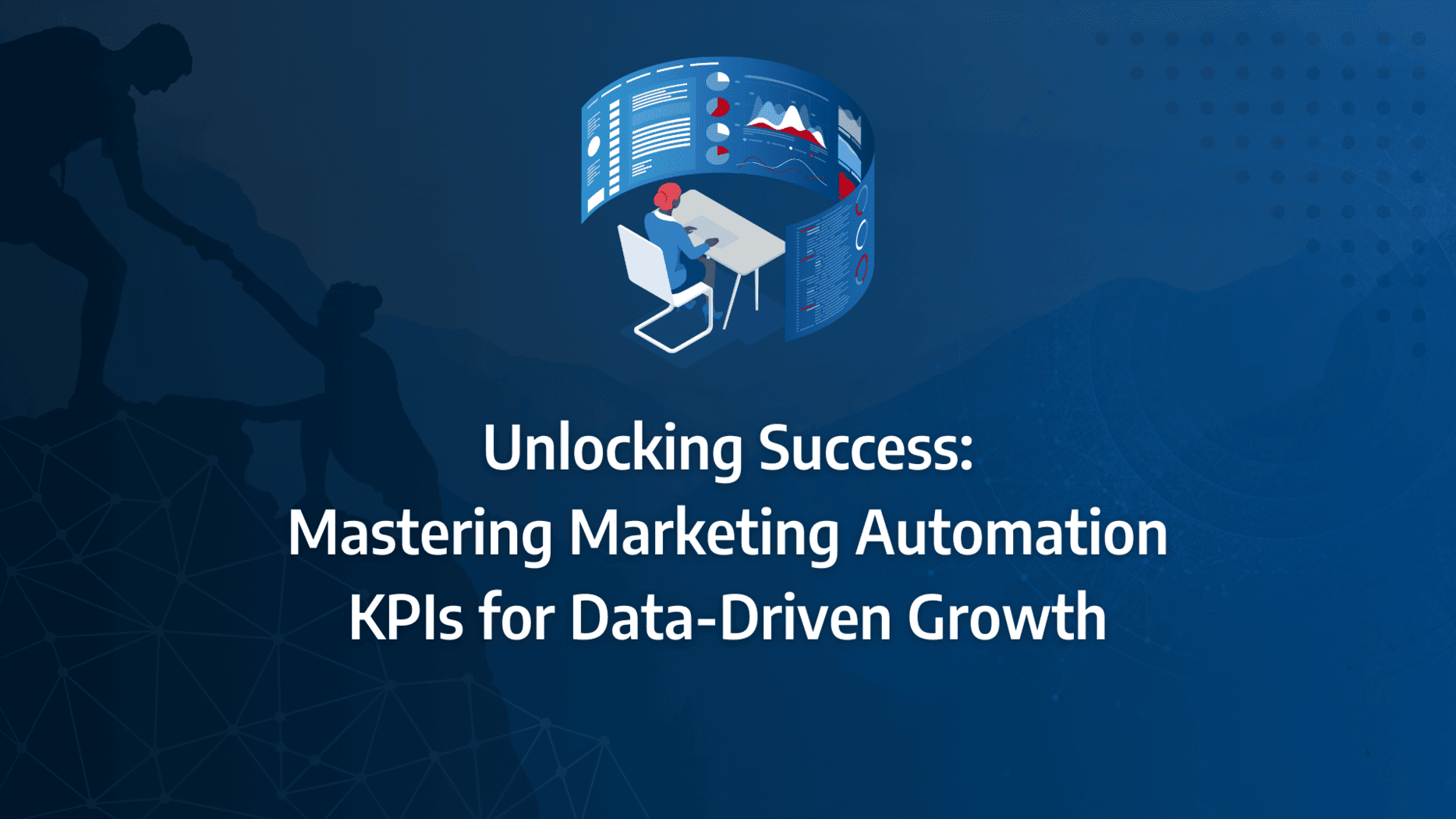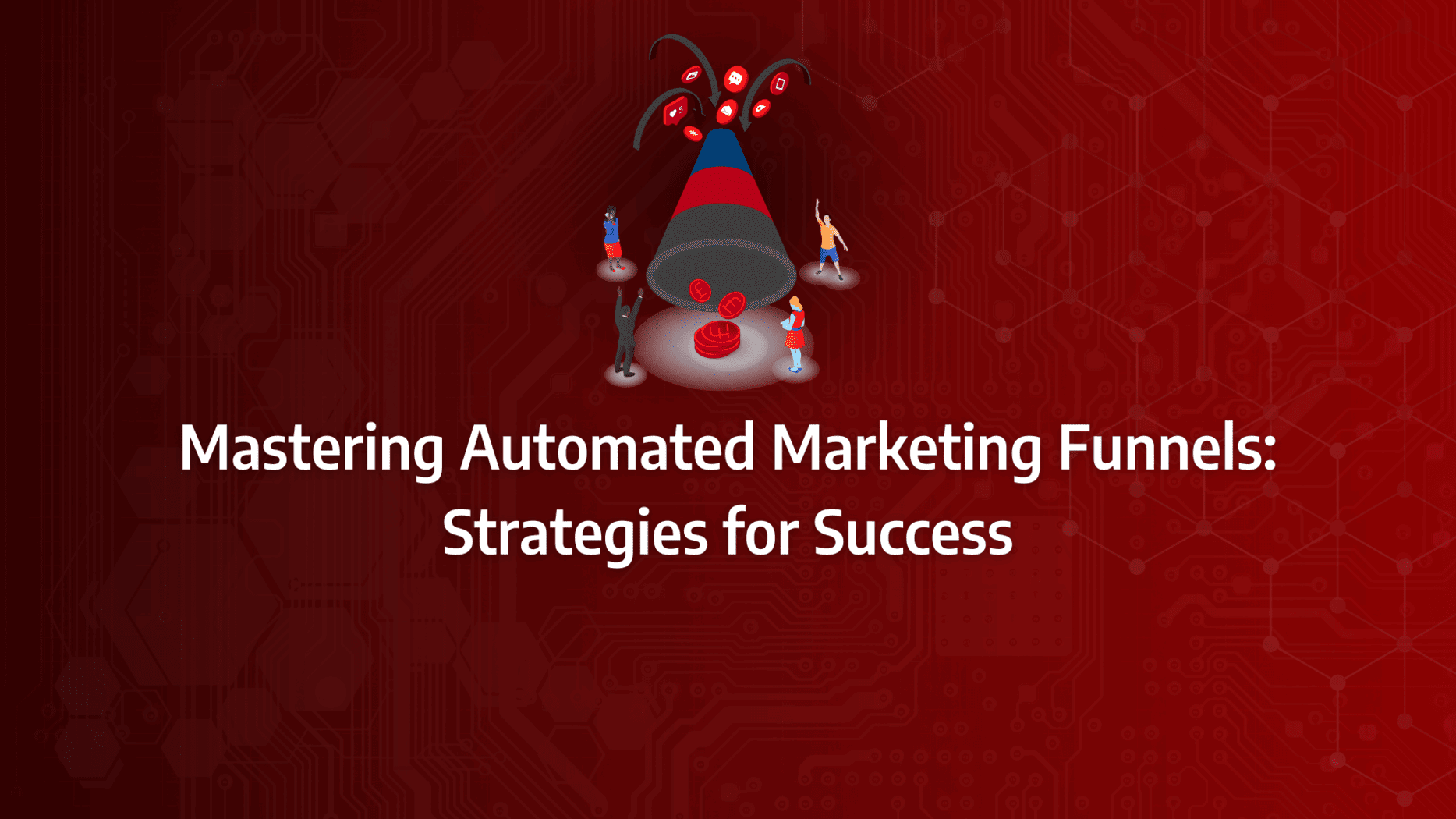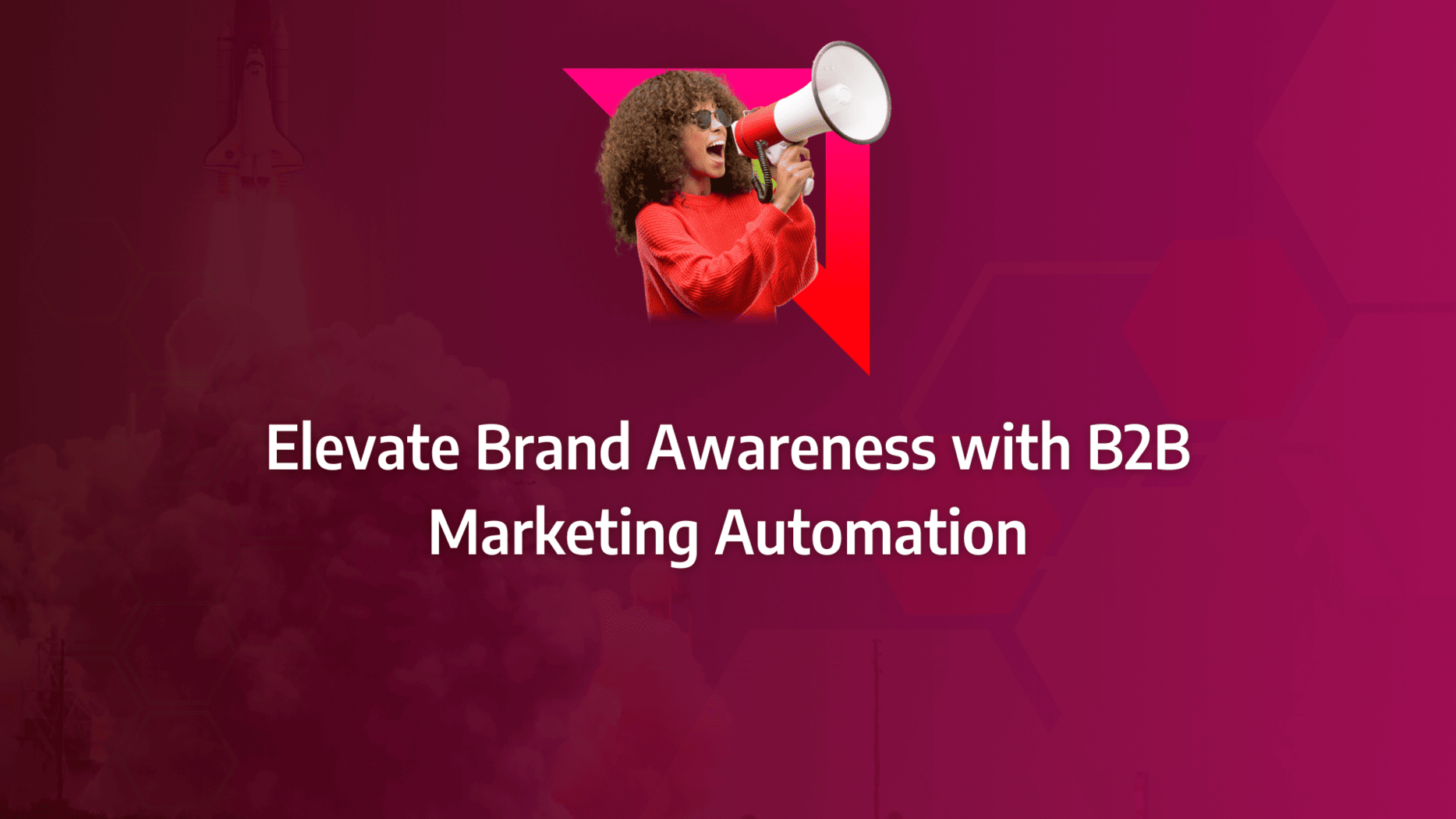Imagine trying to manage your marketing operations manually—juggling endless tasks, missing opportunities, and struggling to keep up with the competition. This is a common challenge for many businesses today. The good news? Marketing automation tools can transform this chaotic process into a streamlined, efficient operation.
By leveraging the right tools, you can automate repetitive tasks, enhance your targeting strategies, and nurture leads more effectively, freeing up valuable time to focus on what truly matters—growing your business. In this guide, we’ll explore how to select and implement the best marketing automation tools to optimise your marketing efforts and stay ahead of the curve.
- Streamline Marketing Operations: Implement marketing automation tools to automate repetitive tasks, saving time and increasing operational efficiency.
- Enhance Lead Nurturing: Use automation to improve your targeting and nurturing strategies, ensuring better engagement with potential customers.
- Choose the Right Tools: Evaluate both free and paid marketing automation tools based on your specific needs and budget, focusing on scalability and integration.
- Avoid Common Pitfalls: Learn from common mistakes businesses make when adopting marketing automation and take steps to avoid them.
What Are Marketing Automation Tools?
Marketing automation refers to the use of technology to streamline and automate recurring marketing activities. A marketing automation platform is a tool that enables businesses to design, execute, and automate time-sensitive marketing workflows.
These platforms simplify the complex task of managing omni-channel communication strategies, offering seamless coordination across email, social media, and web platforms. The true power of marketing automation tools lies in their ability to support key functions such as lead generation, segmentation, lead nurturing and scoring, relationship marketing, cross-selling, upselling, customer retention, and even measuring marketing ROI.
By integrating with CRM systems, these solutions analyse customer data to reveal preferences and behaviours, providing insights that allow you to tailor your marketing with precision.
Key Features of Marketing Automation Solutions
For small businesses, the right marketing automation solutions should provide several critical features. Here’s what to look for:
- User-friendly interface: Simplify complex processes with an intuitive platform.
- Landing page creation: Build targeted landing pages to capture leads.
- Email campaign management: Automate personalised email campaigns.
- CRM integration: Seamlessly connect with your CRM to manage leads.
- A/B testing: Optimise campaign performance through split testing.
- Detailed analytics: Gain deep insights into your marketing performance.
- Lead nurturing and management: Cultivate and manage leads efficiently.
- Social media management: Automate and schedule social media posts effortlessly.
By adopting free marketing automation tools, small businesses can unlock efficiencies without the financial strain. These solutions are designed to grow with your business, making it easier to scale your marketing efforts as your company expands.
What Matters Most?
One of the most important considerations when implementing marketing automation tools is how effectively they integrate with your existing tech stack. Clients often discover that flexibility in their systems allows them to stay nimble, adapting to both internal shifts and external market changes. Finally, we typically recommend a lifecycle approach that extends beyond lead acquisition, enabling full automation coverage from awareness to retention, ensuring that customer value is continually maximised.Get In Touch
How do marketing automation tools help streamline marketing processes?
To truly benefit from free marketing automation tools, it’s essential to move beyond viewing technology as a quick-fix solution. In the last five years, there has been an overwhelming expectation that these tools are the magic bullet that can eliminate marketing challenges overnight. However, while marketing automation tools are powerful, they are not a cure-all. The most successful marketing strategies extend far beyond automation itself, with these platforms taking on the heavy lifting to enable marketers to focus on delivering superior customer experiences through actionable insights.
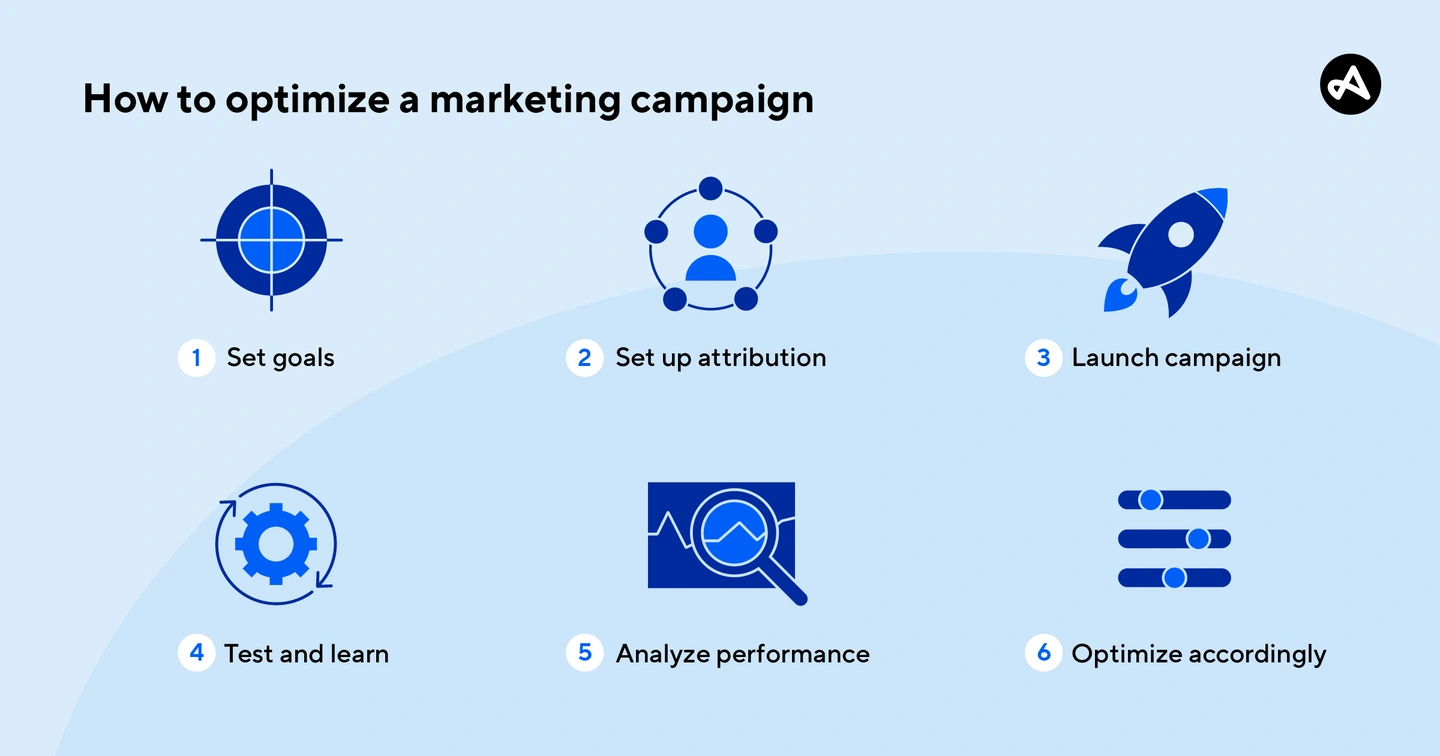
That being said, utilising marketing automation solutions effectively requires long-term investment and commitment. Just as you would carefully nurture and shape your customer journeys, you need to apply the same dedication to harnessing the full capabilities of your marketing automation software. If you’re only scratching the surface of the platform’s potential, you risk seeing only fleeting results instead of the sustainable growth you’re aiming for.
Below are eight essential tips to ensure you are making the most of your marketing automation tools:
1) Structure Your Campaigns from the Start
Avoid the temptation to tackle everything simultaneously. Start by getting the fundamentals right. Focus on implementing the core aspects of your campaign, and before long, you’ll see a return on your investment. Build momentum by expanding your audience reach and improving your capabilities incrementally.
2) Optimise Every Step of Campaign Creation
The quality of your data, processes, and messaging plays a pivotal role in your success. Bad data won’t generate new leads, ineffective processes won’t guide prospects through the funnel, and weak messaging won’t engage your audience. Strive for excellence at every stage to maximise your results.
3) Align Your Sales and Marketing Efforts
Collaboration between your sales and marketing teams is key. Together, develop best practices for lead nurturing and lead scoring to ensure that only the most qualified leads reach the sales department. This alignment is crucial to making your automation platform work effectively.
4) Adhere to Established Marketing Guidelines
Ensure your staff is trained in industry best practices. Whether it’s segmentation, form creation, CRM integration, or compliance with regulations, following these guidelines ensures that your marketing automation solutions operate at peak efficiency.
5) Personalise Your Marketing Efforts
Effective marketing is driven by personalisation. Use detailed personas and behavioural data to guide your efforts, ensuring that your messaging is tailored to each individual prospect. Avoid assumptions and rely on the data to lead the way.
6) The Technology Isn’t Always to Blame
When you don’t achieve instant results, it’s easy to point fingers at your marketing automation tools. More often than not, the problem lies with the way the tool is being used. If your team lacks the necessary skills or training, reach out to your software provider for advanced training and support.
7) Build a Strong Business Case for Your Marketing Automation Software
Your company has likely invested a significant amount in your marketing automation platform, and now it’s your responsibility to demonstrate its value. Make sure your stakeholders understand how this tool is driving efficiencies, supporting marketing activities, and contributing to revenue growth.
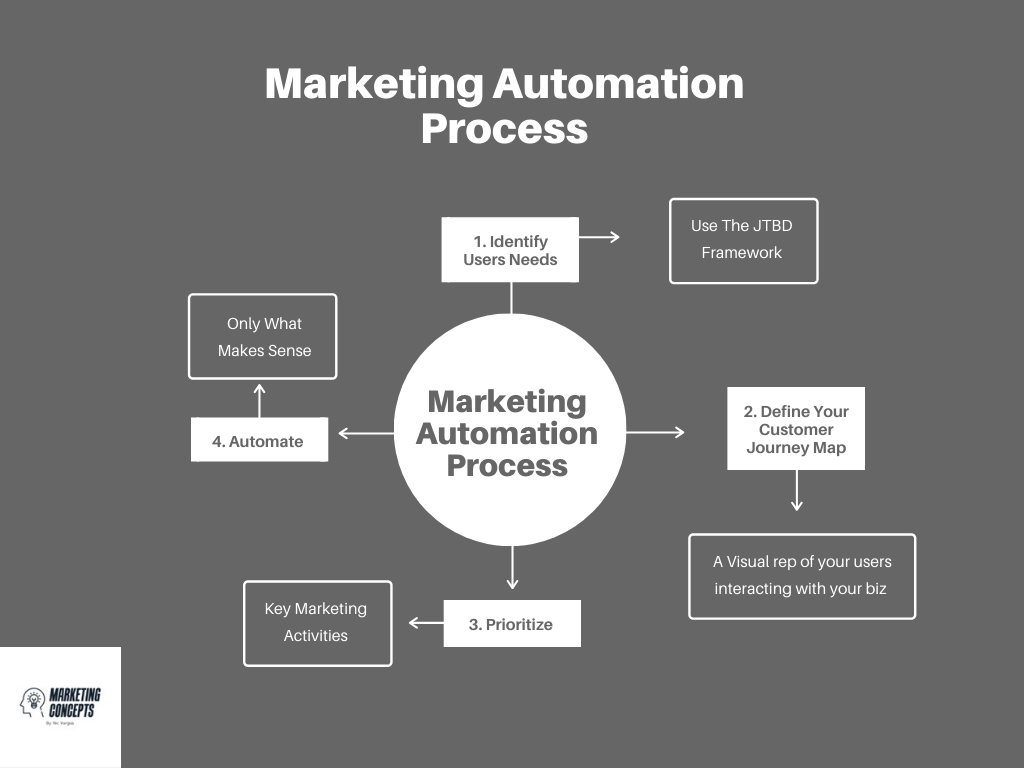
What features should I look for in a marketing automation tool?
When selecting marketing automation solutions, it’s crucial to ensure that the platform provides comprehensive tools that enable you to manage and optimise every aspect of your marketing strategy. Below are the essential features to consider when evaluating marketing automation tools for your business:
1) Lead Capture: Understanding your prospects is the foundation of effective marketing. A strong marketing automation tool should allow you to capture essential information about your leads—such as their role, needs, and pain points—so that you can tailor your approach. Typically, this involves setting up a lead capture page, where users provide information (e.g., name, email, job title) in exchange for something valuable, such as an e-book or discount code. This process helps you build a rich database of prospects who are genuinely interested in your offerings.
2) Lead Scoring and Management: Lead scoring enables you to distinguish between prospects who are ready to engage and those who need further nurturing. By using demographics, behavioural data, and other insights, you can allocate a score that ranks prospects based on their likelihood of conversion. The platform should automatically route these leads into the appropriate nurture or drip campaigns, ensuring that hot leads are prioritised and nurtured effectively. Combining lead scores with grades based on job title, company size, and other factors helps to streamline your approach, so marketing and sales teams are aligned on the highest-value opportunities.
3) Lead Nurturing: In B2B marketing, long sales cycles mean that nurturing is key. A top-tier marketing automation platform automates the delivery of timely, relevant content to prospects at every stage of their journey. Rather than sending sporadic emails, automated nurturing tracks engagement and drip-feeds the most appropriate content at just the right time. This keeps prospects engaged and moves them through the sales funnel without the need for manual intervention.
Source: Invesp
4) Campaign Management: Effective campaign management is at the heart of any marketing automation solution. Look for tools that support A/B testing, SEO optimisation, and social listening, so you can gather insights and refine your strategy as needed. A robust campaign management system allows you to automate everything—from lead qualification to ROI tracking—across multiple channels, meaning you can focus on refining your strategy while the system manages the operational workload.
5) Content Management: Content is the driving force behind marketing success, and your automation platform should make it easy to manage. A solid content management system will allow you to create, organise, and repurpose assets such as emails, product sheets, and social media posts across various channels. Whether you need to customise content for different audiences or update assets across campaigns, the platform should handle tagging, organising, and deploying content efficiently. This ensures consistency across all touchpoints and reduces the risk of outdated content being used.
6) CRM Integration: Seamless CRM integration is essential for tracking prospect engagement and ensuring that no lead slips through the cracks. Once a prospect interacts with your marketing efforts, your CRM should automatically create a new lead and route them into the correct nurture flow. From there, your marketing automation tool should track engagement, such as website visits or email opens, and alert your sales team when it’s time to follow up. This close integration between CRM and automation streamlines your marketing and sales workflows, making your efforts more efficient and effective.
7) Analytics and Reporting: One of the most powerful aspects of marketing automation tools is their ability to provide detailed analytics and reporting. The platform should offer in-depth insights into how your campaigns are performing across multiple channels. By automating the process of data collection and analysis, it should help you fine-tune your strategy in real time, ensuring continuous optimisation. Additionally, if your CRM is integrated, you’ll be able to track ROI and tie conversions directly to specific marketing activities, providing a clear picture of what’s driving success.
8) Campaign Tagging: Campaign tagging is a crucial feature that enables you to organise and track your marketing efforts efficiently. By associating all assets with a specific campaign, you can monitor which touchpoints prospects interacted with—even if they weren’t known to your system at the time. This level of transparency gives you valuable insights into how prospects are engaging with your content, helping you attribute performance and ROI accurately.
6 Best Free Marketing Automation Tools
1. Freshworks CRM
Previously known as Freshsales, Freshworks CRM is a recent addition to the Freshworks portfolio. This AI-powered platform combines CRM and marketing automation tools into one, making it an ideal choice for businesses looking for an all-in-one solution. Freshworks CRM offers a free marketing automation tool plan, allowing businesses to manage contacts and customer information in a single place. Additionally, you can communicate with customers directly through the app, using the chat or phone functionality. Freshworks CRM’s free marketing automation solution also includes access to its support team, offering assistance whenever needed.
One of the platform’s standout features is its seamless integration with other Freshworks products, such as Freshdesk and Freshsuccess, as well as popular applications like Outlook Contacts, Google Contacts, and Google Calendar.
What’s included in the free plan?
- Contact management
- Phone and chat communication
- 24×5 support
2. HubSpot Marketing
HubSpot Marketing is a highly advanced marketing automation solution, designed to unify all your marketing activities for greater traffic and conversion growth. Its drag-and-drop functionality makes it easy to design and modify websites, while its responsive landing pages are viewable on any device. HubSpot’s free marketing automation tools allow users to create visually appealing content that is easily shared with target audiences.
Moreover, the platform offers numerous SEO and social media suggestions, helping you reach relevant influencers. Personalisation features ensure that messages are tailored to your site visitors, and calls-to-action are easily created. If you decide to upgrade, it’s wise to explore the features through HubSpot’s free trial before committing to a paid plan. HubSpot is known for its exceptional customer support, with highly trained agents available to assist.
What’s included in the free plan?
- Lead analytics dashboard
- Forms
- Contact activity tracking
- Contact and company management
- Facebook lead ads
Source: Ascend2
3. EngageBay
EngageBay is a popular option among small to medium-sized businesses, offering a versatile free marketing automation tool that covers email marketing, sales, and live chat. The platform streamlines lead generation and contact management, making it easier to automate and manage multiple business processes in one user-friendly space.
A major advantage of EngageBay’s free marketing automation solution is its strong CRM functionality. From contact and email management to lead nurturing, automated live chat support, and ticketing systems, EngageBay provides a robust solution that combines affordability with efficiency.
What’s included in the free plan?
- 1,000 contacts
- 1,000 branded emails per month
- Contact management
- Ticketing management
- Lead grabbers and forms
- Facebook ads and social media management
- 500 MB file storage
- Email and chat support
4. Zoho Campaigns
Zoho Campaigns is an email marketing solution specifically designed for small and medium-sized businesses (SMBs). Its free marketing automation tools are geared towards simplifying email and mailing list management, ensuring that the right data is delivered at the right time. By leveraging social campaigns across platforms like LinkedIn, Twitter, and Facebook, Zoho Campaigns allows users to engage their target audience effectively.
The platform also offers a free marketing automation solution trial for those interested in exploring its key features. With pre-designed templates and layouts, creating compelling emails is straightforward, while the platform’s spam management features ensure that your mailing lists remain clean and effective.
What’s included in the free plan?
- Up to 12,000 emails per month for up to 2,000 subscribers
5. MailChimp
MailChimp is one of the most widely used marketing automation tools available, suited to businesses of all sizes. This platform offers powerful tools for managing email marketing, customer engagement, and sales processes, making it a go-to choice for many marketers. MailChimp’s free marketing automation solution allows you to create, execute, and analyse email and advertising campaigns with ease.
You can also manage subscribers, view click-through rates, generate customised reports, and track email performance. The platform includes pre-designed templates, but it also offers the flexibility to create your own designs.
What’s included in the free plan?
- A/B testing
- Email beamer
- Facebook ad campaigns
- Google remarketing ads
- Instagram ad campaigns
- One-click upsells
- Geolocation targeting
- Product recommendations
- Mobile app
- Campaign URLs and social sharing
- Knowledge base access
6. Drip
Drip is an email marketing platform that focuses on customising and automating email campaign workflows. It caters to businesses, teams, and individuals, offering the ability to send targeted emails and messages to subscribers based on their behaviours. Drip’s marketing automation tools integrate with existing systems through its API, allowing businesses to expand their marketing capabilities and gain actionable insights.
One of Drip’s standout features is its visual workflow builder, enabling marketers to customise the customer experience using triggers and actions. The platform also supports lead capture through widgets, popups, and embedded forms, providing numerous ways to engage prospects.
What’s included in the free plan?
- Up to 100 subscribers
- Unlimited email sends
Our Tactical Recommendations
In our work, we’ve found that automating personalised onboarding for new customers dramatically reduces churn and improves satisfaction. Clients often discover that setting up trigger-based automations for real-time lead engagement can significantly increase conversion rates. Additionally, automating progressive profiling—where you gather more data over time as leads engage—proves invaluable in refining personalised outreach. Typically, this kind of profiling allows for more nuanced customer interactions without overwhelming prospects from the start, keeping them engaged longer in the buying cycle.Get In Touch
Key Considerations When Choosing Your Free Marketing Automation Tools
When selecting free marketing automation tools, it’s important to assess a range of factors that will impact both your immediate and long-term business needs. A comprehensive solution should not only address your current challenges but also grow alongside your business. Below are the critical aspects to evaluate when choosing the right marketing automation solutions.
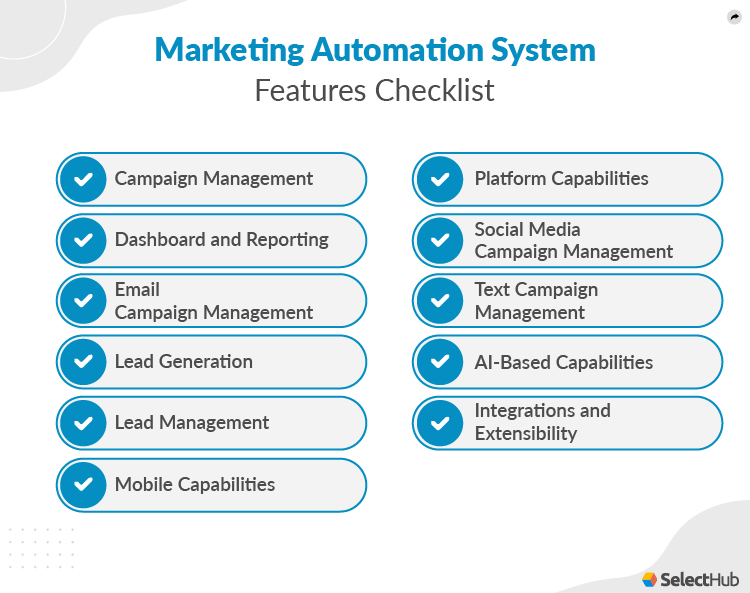
1) Scalability: As your business expands, your marketing platform should be able to scale effortlessly. Choose a marketing automation tool that can grow with you, accommodating an increasing number of users without dramatically inflating costs. This ensures you’re not constantly switching platforms as your needs evolve.
2) Ease of Use and Workflow Setup: The best marketing automation solutions are designed to be intuitive, minimising the time needed for training and setup. Modern tools no longer require extensive training or costly consultants to get started. Instead, they offer user-friendly interfaces and pre-configured workflows, allowing you to implement strategies quickly, leveraging existing expertise and resources effectively.
3) Tagging and Workflow Flagging: One challenge many businesses face with marketing automation tools is managing the complexity of different user journeys. You need a platform that allows for the creation of multiple workflows, capable of adjusting dynamically as users take different actions. The best platforms include tagging and flagging systems to ensure users are moved between workflows seamlessly based on their behaviours. For example, a tool should prevent an unnecessary “trial expiry” email being sent to a newly signed-up customer who has already converted.
4) Compliance with Spam and Privacy Regulations: Compliance with spam regulations is critical in today’s marketing environment. Your marketing automation solution must stay updated with the latest rules to protect consumer data and privacy. Make sure your platform includes features such as Sender Policy Framework (SPF) and DomainKeys Identified Mail (DKIM) for email authentication, which help verify the legitimacy of your communications. Additionally, it’s important to choose a tool that adapts to evolving regulations to ensure ongoing compliance.
5) Personalisation Capabilities: Personalisation is essential for increasing customer engagement. The best marketing automation tools will allow you to tailor content down to the individual, addressing users by name and customising messaging based on behavioural data. This creates a more human, relatable experience. Ensure your platform also provides fallbacks for instances where less personalised data is available, avoiding cold, generic communications.
6) Flexible Trigger Options: The more flexibility you have in setting triggers, the better you can fine-tune your marketing efforts. Look for platforms that allow you to create workflows based on a wide range of customer actions—beyond just email interactions. Examples include watching a video, spending a certain amount of time on your website, or even detecting inactivity. The more triggers available, the better you can guide potential customers through the sales funnel.
7) Workflow Actions: Your marketing automation platform should allow for a wide range of actions within customer journeys. The most effective tools offer nearly limitless action options, enabling you to build sophisticated, multi-step journeys. The more actions your platform supports, the easier it becomes to optimise your campaigns based on customer data, tailoring every touchpoint to the user’s journey.
8) Third-Party Integration and API Compatibility: Integration with other systems is crucial for seamless operations. Your marketing automation tool should connect easily with your existing CRMs and third-party tools, allowing for smooth synchronisation and reducing the need to overhaul your current workflows. When evaluating a platform, check its compatibility with the software you already use to minimise disruption and ensure the system enhances, rather than complicates, your processes.
9) Hyper-Segmentation and List Management: Beyond personalisation, effective marketing requires granular segmentation. Your automation platform should make it simple to create and manage multiple, highly detailed contact lists. With hyper-segmentation, you can target your messaging precisely, delivering tailored content that speaks directly to specific user needs, increasing engagement and conversion rates.
10) In-Depth Analytics and Conversion Tracking: To optimise your campaigns, robust analytics are essential. Your marketing automation solution should provide in-depth data on every stage of the customer journey. This allows your sales team to understand how each lead interacts with your brand, offering personalised consultations based on detailed insights. With comprehensive data, you can enhance the customer experience, improving conversion rates and fostering loyalty among your existing customer base.
By focusing on these key factors, you’ll be well-equipped to select the free marketing automation tools that not only meet your current needs but also support future growth, ensuring long-term success in your marketing efforts.
